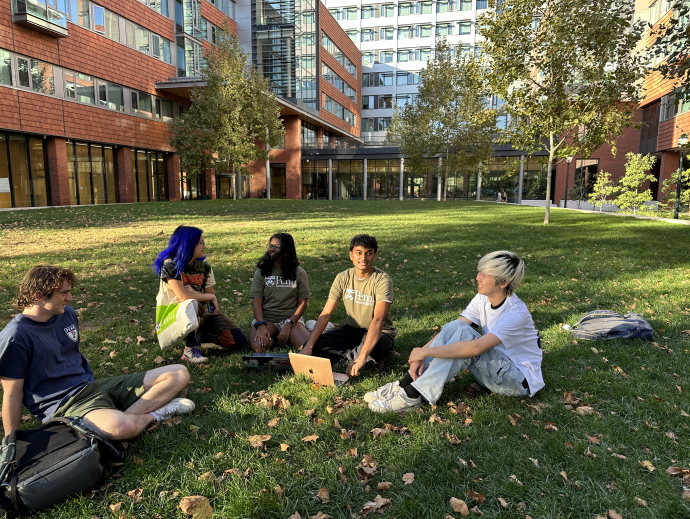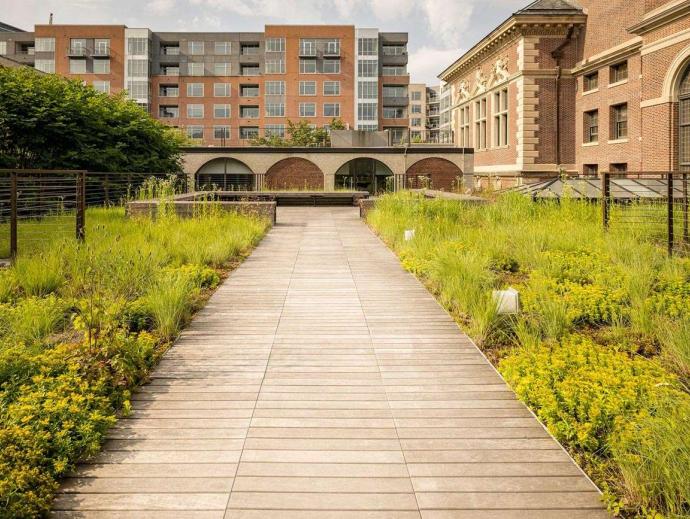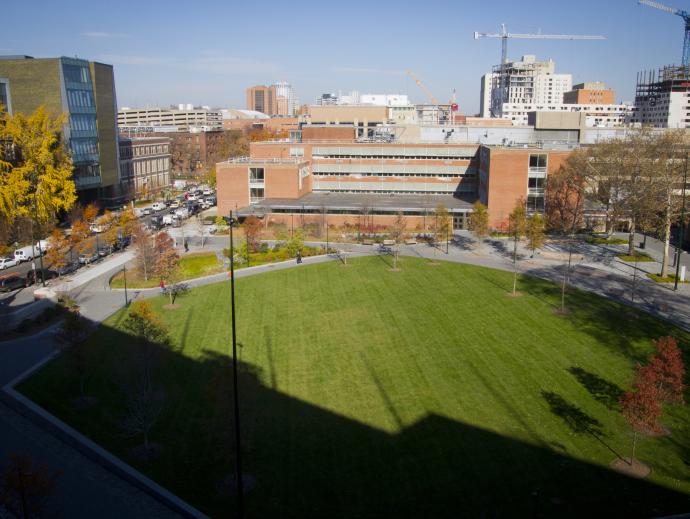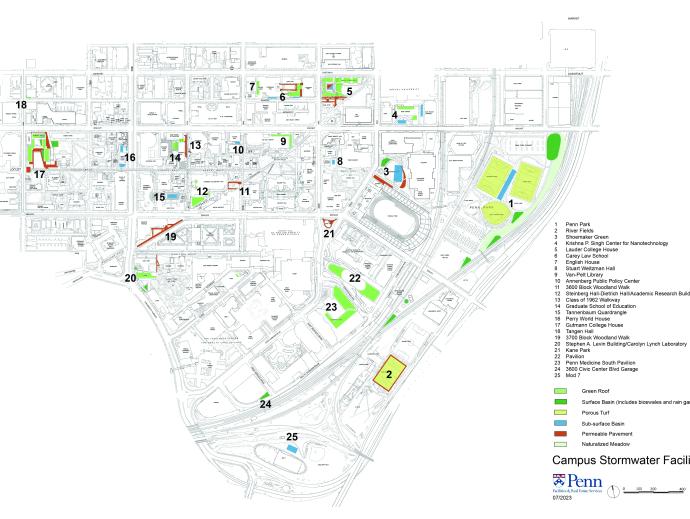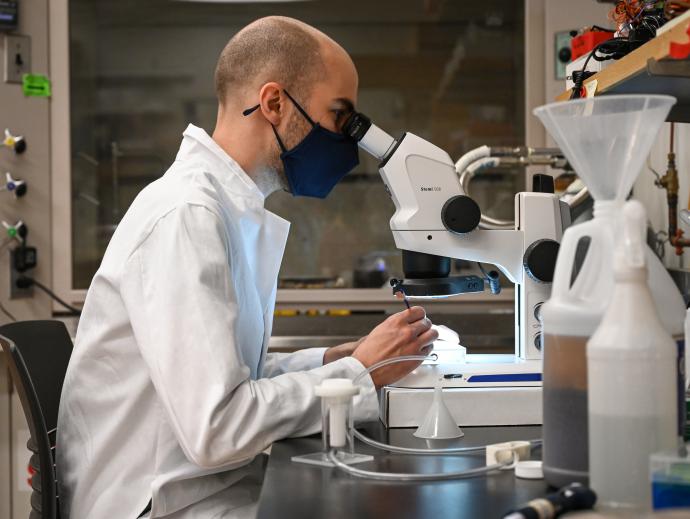About the Green Fund
Penn’s Green Fund welcomes ideas from students, faculty, and staff about ways to improve the University’s environmental performance and reduce campus emissions. Since 2009, this initiative of the Penn Sustainability Office, funded by the Division of Facilities and Real Estate Services, has seeded innovative ideas in environmental sustainability from members of the University community.
Proposed projects must support goals and objectives outlined in Penn’s Climate and Sustainability Action Plan 4.0, a long-range strategy, launched in 2009 and updated in 2014, 2019, and 2024, to reduce the University’s carbon footprint and enhance its overall sustainability.
Green Fund Details
Below is a general overview of the Green Fund application guidelines. Additionally, it is recommended that all prospective applicants read the FAQs before submitting an application.
There is no minimum award for a Green Fund application and the maximum award is $30,000.
Applications are accepted on a rolling basis and are reviewed monthly by the Green Fund Review Committee. Typically, a maximum of two applications are reviewed each month. Upon submitting your application, you will be notified of your project's estimated review date.
Applicants requesting over $10,000 will be required to present their proposal to the Green Fund Review Committee. Applications of this size will likely take more than one month for review and approval.
Applying to the Green Fund
Proposal Criteria
Penn’s Green Fund accepts applications from all current students, faculty, and staff. The Green Fund is intended to provide financial support for projects that would otherwise not be implemented and that support the University’s Climate and Sustainability Action Plan 4.0 objectives.
Awards are not permitted to fund on-going costs or wages. The Green Fund does not fund UPHS projects or business start-ups. Any intellectual property created due to the Green Fund belongs solely to the University of Pennsylvania.
Prerequisites
The following items are prerequisites to initial review that must be included in your application:
- Description – Provide a detailed project description, including, but not limited to, goals, intended outcomes, criteria for evaluating success, and target audiences. If applicable, include an explanation of any additional, independent funding secured.
- CSAP 4.0 – Describe how the project supports the goals of Penn’s Climate and Sustainability Action Plan 4.0.
- Budget – Provide a detailed budget for the funding received from the Green Fund. If applicable, include any expected returns on investment and other cost benefits.
- Timeline – Provide a project timeline, including a detailed implementation schedule.
- Team – Detail roles and responsibilities of project participants and leadership. If applicable, include any team succession plans.
- Endorsement– Include an endorsement letter expressing support from faculty member or administrator.
Additional Criteria
Preference will be given to projects that incorporate the following:
- Distinctiveness – Provide information on how this project demonstrates a unique idea with significant impact. Preference will be given to projects that have not yet been implemented in some capacity on campus, though applications that build off existing projects and provide significant additional benefits are also welcome.
- Social Benefits – Describe any social benefits the project will have for the local West Philadelphia community or for the Penn community.
- Replicability – Provide information on future replicability and/or scalability. Preference will be given to projects that are replicable at a larger scale.
Email applications to sustainability@upenn.edu using the subject “Green Fund Application.”
Reporting
Upon completion, Green Fund recipients are required to report to Penn Sustainability Office. Reporting requirements include:
- Within one month, a written report emailed to sustainability@upenn.edu using the subject “Green Fund Final Report – Project Name”.
- Projects exceeding $10,000 are required to present the results of a project to Penn Sustainability, the Green Fund Review Committee, the Vice President of Facilities and Real Estate Services, and other relevant parties.
- Reports and presentations should include the following information:
- Project overview
- Key stakeholders
- Implementation procedures
- Project results
- Lessons learned and future recommendations
- Any related articles or sources
- Project photos
Application Support
Meeting with Penn Sustainability staff prior to submitting an application can be helpful to identify other University partners and to understand the types of projects the Green Fund supports. If you have an idea for a project, but you're not sure if it fits in with the scope of the Green Fund, or if you're looking for suggestions, guidance, or feedback, then schedule a time to meet with our staff by emailing sustainability@upenn.edu.
Download Green Fund Application
